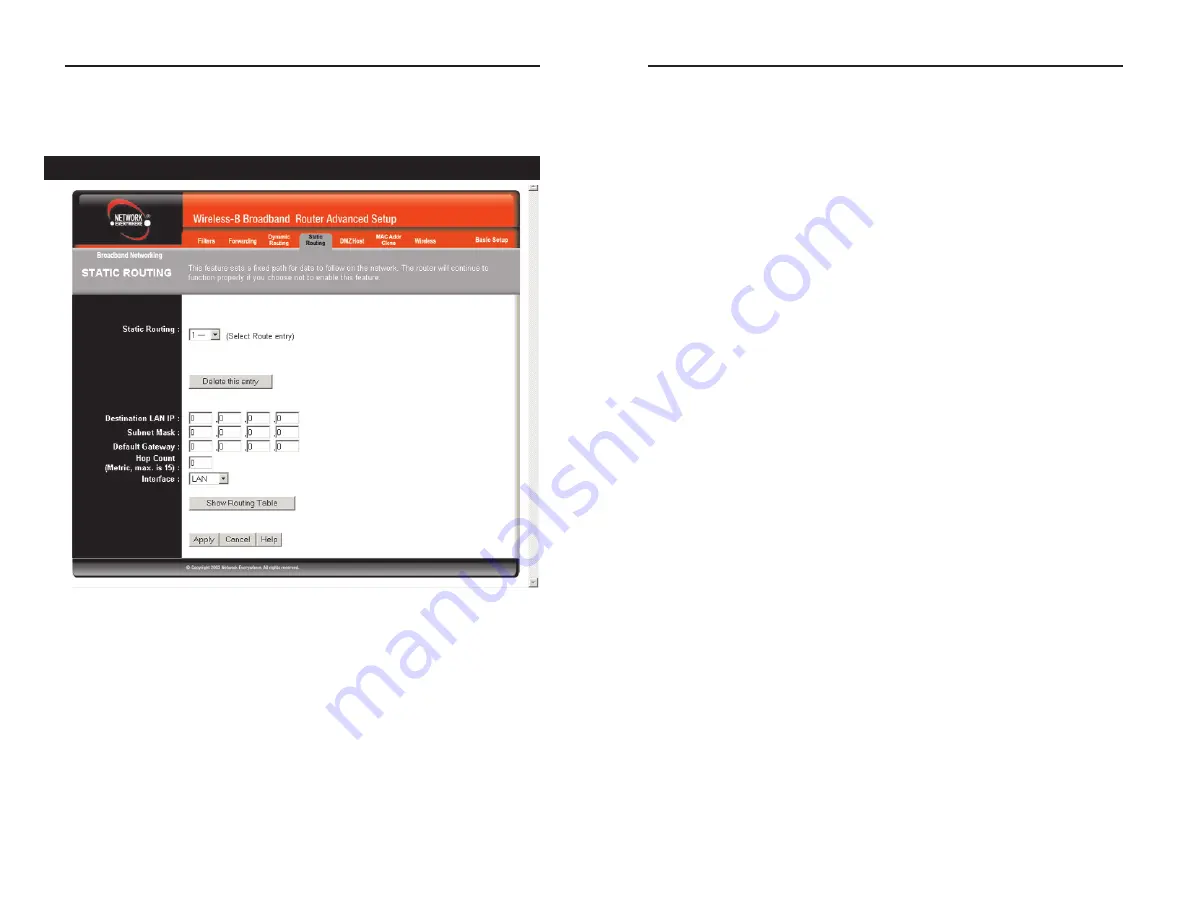
Wireless-B Broadband Router
39
Network Everywhere
®
Series
38
To delete a Static Routing entry, select an
entry
, and click the
Delete this
entry
button.
2. Enter the following data to create a new static route.
Destination LAN IP:
The Destination LAN IP is the address of the remote
network or host to which you want to assign a static route. Enter the
IP
address
of the host for which you wish to create a static route here. If you
are building a route to an entire network, be sure that the network portion
of the IP address is set to 0. For example, the Router’s standard IP address
is 192.168.1.1. Based on this address, the address of the routed network is
192.168.1.x, with the last digit “x” determining the Router’s place on the
network. Therefore you would enter the IP address 192.168.1.0 if you want-
ed to route to the Router’s entire network, rather than just to the Router.
Subnet Mask:
The Subnet Mask determines which portion of an IP
address is the network portion, and which portion is the host portion. Take,
for example, a network in which the Subnet Mask is 255.255.255.0. This
determines (by using the values 255) that the first three numbers of a net-
work IP address identify this particular network, while the last digit (from
1 to 254) identifies the specific host.
Default Gateway:
This IP address should be the IP address of the gateway
device that allows for contact between the Router and the remote network
or host.
Hop Count:
This determines the maximum number of steps between net-
work nodes that data packets will travel. A node is any device on the net-
work, such as PCs, print servers, routers, etc. The maximum metric, or
measure, of hops is 15.
Interface:
Select
LAN
or
WAN
, depending on the location of the static
route’s final destination.
To apply any of the settings you’ve changed on this page, click the
Apply
but-
ton. To cancel any values you’ve entered on this page, click the
Cancel
button.
If you should need any further information about anything on this screen, click
the
Help
button.
To apply any of the settings you’ve changed on this page, click the
Apply
but-
ton. To cancel any values you’ve entered on this page, click the
Cancel
button.
If you should need any further information about anything on this screen, click
the
Help
button.
If the Router is connected to more than one network, it may be necessary to set
up a static route between them. This can be accomplished from the Static
Routing screen, shown in Figure 5-16. A static route is a pre-determined path-
way that network information must travel to reach a specific host or network.
From the Static Routing tab, click the
Show Routing Table
button to view the
current static routing configuration.
To create a static route entry:
1. Select a
Static Route Entry
from the drop-down list. The Router supports
up to 20 static route entries.
Static Routing
Figure 5-16


















